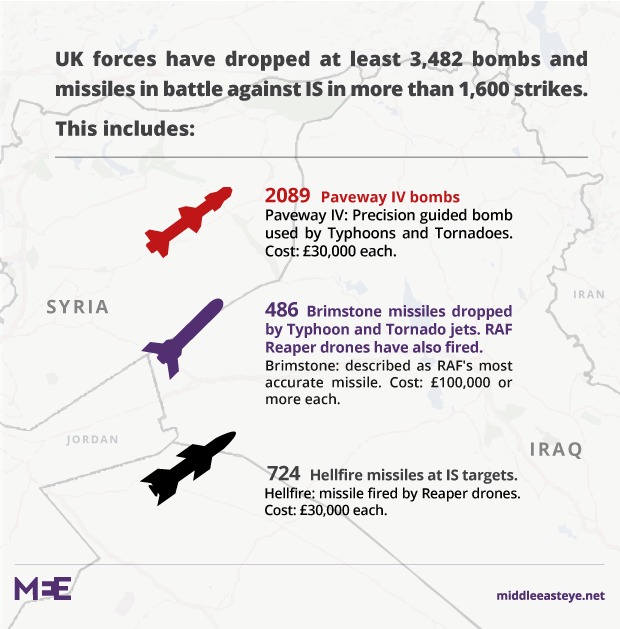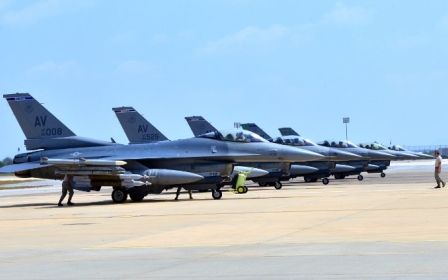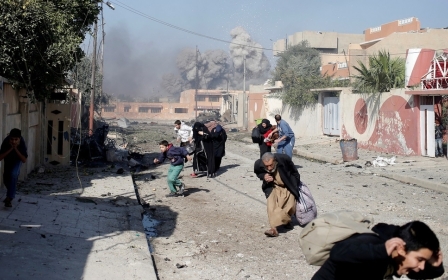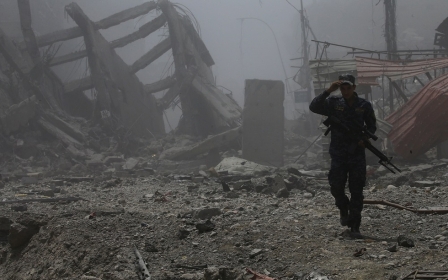Syria and Iraq air strikes drive doubling of civilian death toll: Report
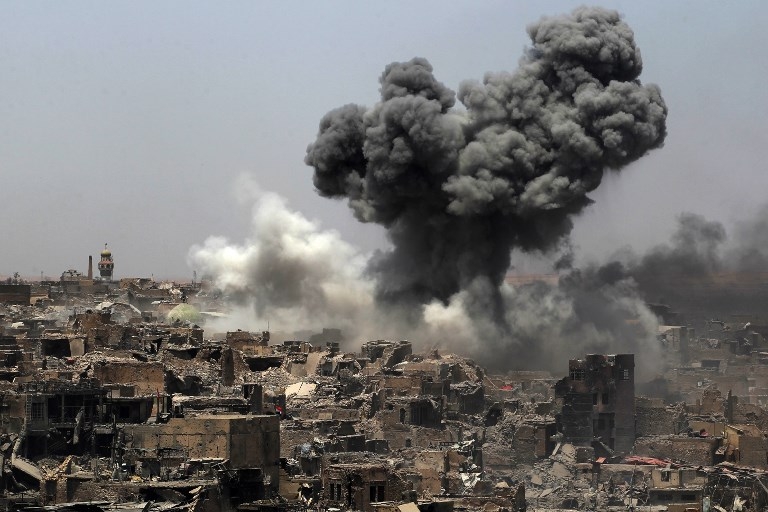
Air strikes contributed to a doubling of civilian deaths in Iraq and Syria last year, according to a war monitor, raising fresh questions over the death toll resulting from the push to defeat the Islamic State (IS) group.
At least 15,399 civilians were killed globally from "explosive violence" in the first 11 months of 2017, according to Action on Armed Violence’s (AOAV) report drawn from coverage in English-language media.
Civilian deaths in Syria increased by 55 percent to 8,051 from the 2016 figure, while over the same period in Iraq, there was a 50 percent increase to 3,271.
The figures for Syria and Iraq are in stark contrast to those given by members of the US-led coalition, including Britain, which is operating in the skies above Syria and Iraq, and coincided with the US-led military operations to reclaim the IS strongholds of Mosul, in Iraq, and Raqqa, in Syria.
Russian and Syrian forces are thought to be responsible for more civilian casualties than the coalition, month-on-month.
The UN has said that more than 10,000 people have died in the Saudi-led war in Yemen, with 60 percent of those deaths resulting from air strikes. Saudi Arabia also denies it targets civilians, despite growing evidence by rights groups of dozens of attacks.
According to Airwars, which monitors deaths in Iraq and Syria, the estimated number of alleged civilian deaths as a result of US-led military operations against IS in Iraq and Syria last year was between 11,000 and 18,000.
An Associated Press report last month put the estimated number of civilian deaths in Mosul alone at 9,000. Combined with figures released by Amnesty International, Iraq Body Count and the UN, the number of dead could be as many as 11,000 people, while hundreds are still thought to be buried in the rubble.
The US-led coalition has admitted causing 800 deaths in Syria and Iraq since 2014, and claims to have caused 326 deaths in Iraq last year.
Britain denies its actions as part of the coalition have resulted in any civilian deaths. An MEE investigation revealed had dropped over 3,400 bombs on targets in Syria and Iraq since 2014.
Even so, for the first time since AOAV began to collect data, states were responsible for the majority of civilian deaths.
"Significantly, as air strikes are almost always used by state actors, rather than non-state groups, states were responsible for the majority of civilian deaths from explosive weapons for the first time since our records began,” AOAV said on a statement on their website.
Iain Overton, the executive director of AOAV, said of the findings: "These are stark figures that expose the lie that precision-guided missiles as used by state air forces do not lead to massive civilian harm.
"When explosive weapons are used in towns and cities, the results are inevitable: innocent children, women and men will die. States need to ensure that their rules of engagement when using such weapons over populated areas are proportionate and are monitored with extreme care.
"We urge states to come together to discuss how to prevent such harm from increasing.
"We support the political commitment being formulated that should encourage states to refrain from using explosive weapons over populated areas."
MEE contacted the US military for a response but did not receive a response by the time of publication.
New MEE newsletter: Jerusalem Dispatch
Sign up to get the latest insights and analysis on Israel-Palestine, alongside Turkey Unpacked and other MEE newsletters
Middle East Eye delivers independent and unrivalled coverage and analysis of the Middle East, North Africa and beyond. To learn more about republishing this content and the associated fees, please fill out this form. More about MEE can be found here.


